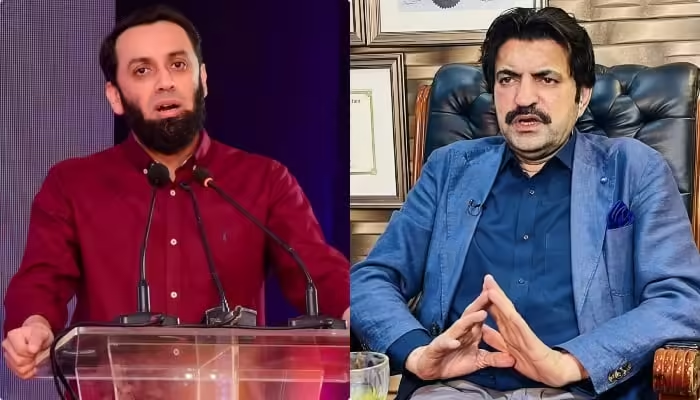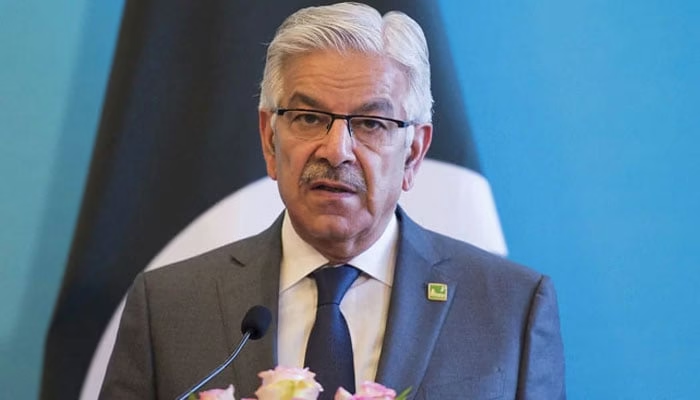The political landscape in Pakistan is once again heating up as the Pakistan Tehreek-e-Insaf (PTI) party, led by former Prime Minister Imran Khan, has announced plans to hold a public rally in the federal capital, Islamabad, on August 22. The announcement has sparked a strong response from the government, with Federal Minister for Information & Broadcasting Attaullah Tarar indicating that the opposition party may not be granted permission to stage the event.
Speaking on the Geo News program “Aaj Shahzeb Khanzada Kay Sath” on Monday, Minister Tarar expressed skepticism about the PTI’s ability to secure authorization for the rally, citing the party’s history of protests. “Viewing their past record, I don’t believe they will be allowed to rally in Islamabad,” Tarar stated. His remarks reflect the government’s concerns about the potential for unrest and violence, which have marred previous PTI demonstrations.
The announcement of the rally comes after a prolonged effort by the PTI to organize a significant show of strength in Islamabad. Adviser to the Khyber Pakhtunkhwa (KP) Chief Minister on Information, Barrister Muhammad Ali Saif, confirmed on Sunday that PTI founder Imran Khan had “decided” to proceed with the public rally despite the challenges. Saif reassured that the party would make every effort to avoid any violation of the law, signaling an intent to keep the event peaceful.
However, Minister Tarar was quick to cast doubt on these assurances, pointing to the party’s past actions as evidence that a peaceful rally may not be feasible. “The recent past’s action could be taken into account to check the veracity of the claim of its being a peaceful event,” Tarar said. He questioned the PTI’s ability to maintain peace during their protests, remarking, “One does not become peaceful [merely] by saying [so], one has to prove it.”
The information minister’s skepticism is rooted in the history of PTI protests, which have often been marked by confrontations with law enforcement and disruptions in the capital. Tarar’s comments also appeared to respond directly to rhetoric from the PTI’s leadership, including statements from KP Chief Minister Ali Amin Gandapur. Gandapur had boldly declared that the party would hold the rally in Islamabad “come what may,” echoing the defiant stance taken by previous PTI leaders.
Recalling a similar situation in the past, Tarar mentioned how former KP Chief Minister Pervez Khattak had led a protest in Islamabad, bringing with him cranes and modern equipment, a move that raised tensions and led to clashes. The minister’s recollection served as a reminder of the government’s concerns about the PTI’s protest tactics, which have historically included confrontational approaches.
In contrast, Tarar pointed to a recent sit-in protest organized by the Jamaat-e-Islami (JI) against inflated electricity bills. He noted that despite the peaceful nature of the JI protest, the government did not permit them to enter Islamabad. This comparison was likely intended to highlight the government’s consistent approach to maintaining law and order in the capital, regardless of the party involved.
Tarar also took the opportunity to advise the KP government to focus on pressing issues within the province, such as health, education, and anti-terrorism activities, rather than engaging in political rallies. His comments underscore the federal government’s view that the PTI’s priorities are misaligned with the needs of the people, particularly in KP.
Meanwhile, in the same program, PTI leader Sher Afzal Marwat made it clear that the party would not be deterred from holding the rally on August 22, even in the face of potential government resistance. “The KP’s caravan will be monumental and no one will be able to block it even if they try,” Marwat asserted, signaling the PTI’s determination to press ahead with their plans.
Marwat also sought to address concerns about the potential for violence, assuring that PTI supporters would not be carrying weapons or petrol bombs. “We will remain peaceful,” he insisted. However, he issued a stark warning that any government action against the rally could trigger a nationwide response. “If there is violence or firing, the whole Pakistan will rise up,” Marwat warned, suggesting that the consequences of any confrontation could be far-reaching.
As the planned date for the rally approaches, tensions between the PTI and the government continue to escalate. The government’s reluctance to allow the rally, coupled with the PTI’s determination to proceed, sets the stage for a potentially volatile situation in Islamabad. With both sides preparing for a showdown, the coming days will be critical in determining whether the rally will go ahead and, if it does, whether it will remain peaceful or descend into chaos.
The situation highlights the deep political divisions in Pakistan and the challenges of managing public dissent in a charged environment. As the government and the PTI brace for the events of August 22, the eyes of the nation will be on Islamabad, where the outcome of this confrontation could have significant implications for the country’s political future.



